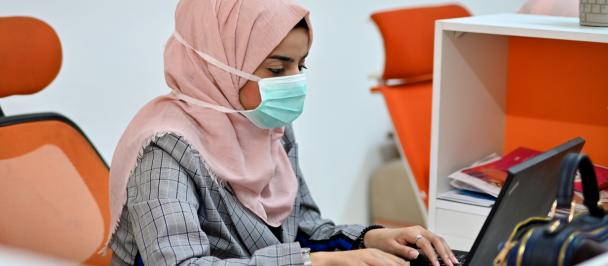If anyone wasn’t convinced that inequality, discrimination and health are connected, the COVID-19 pandemic just made it very clear.
In New York City where I live, we’re facing a double crisis of the rapid spread of coronavirus COVID-19 and systemic racism which are deeply interlinked: COVID-19 disproportionately affects minorities and poor people, both in terms of health and economic consequences.
In the US, a recent report from the Centers for Disease Control and Prevention shows higher prevalence of COVID-19 related illness and death among racial and ethnic minorities. In Brazil, indigenous people are disproportionally hit by the virus. And in India, the lower cast Dalits are among the worst affected.
For the past year I’ve been leading a team in UNDP that helps countries solve complex development challenges, using the Sustainable Development Goals (SDGs) as a roadmap. Our focus is on balancing economic, social and environmental progress to help countries build more inclusive and sustainable societies that are better equipped to deal with crises like COVID-19.
This integrated approach is timely. Because if this pandemic has made one thing clear, it’s that poor health is not only because of systemic barriers in getting healthcare, but by a range of social, environmental and economic factors, such as inequality – both in terms of income and opportunity – and climate change, which affects the health of poor and marginalized people the most.
This reflects deep intersections between issues of health, jobs, education, climate change and governance. We knew that systemic weaknesses and underinvestment in these areas were creating an unsustainable world, one that made the magnitude of the COVID-19 crisis possible.
Then the 2030 Agenda for Sustainable Development and the SDGs were being drafted, more than 10 million people took part in a ‘My world’ survey to vote on the priorities most important to them. Across 194 countries, the top four priority areas were good education, better healthcare, better job opportunities, and honest and responsible government.
These issues are more relevant than ever and reaffirm the importance of the 2030 Agenda. At UNDP, we’re not focusing on getting back to the “normal” world of 2019, but on a transformative recovery to help create the future set out by the SDGs – one that doesn’t separate growth from inequality, or health from systemic racism.
That’s why we’re supporting the government of Peru to build an integrated response for indigenous peoples against COVID-19, and working with the grassroots organization Deccan Development Society in India to help support Dalit women farmers beat exclusion. And that’s why we launched a social media campaign in 50 minority languages in China to share best health practices, and help Paraguay fight increased levels of gender-based violence during the lockdown.
In the coming weeks and months, we would like you to help us build a plan for our common humanity. Through UNDP’s newly launched engagement platform, SparkBlue, we will convene voices from around the world to co-create solutions for COVID recovery and beyond. We’re looking forward to partnering with you towards 2030!

 Locations
Locations
